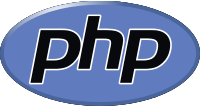PHP, one of the most widely-used server-side scripting languages, continues to evolve with its latest release. In this article, we dive into the new features and improvements introduced in the new PHP version, which promises to enhance developer productivity, improve performance, and ensure better security. Whether you’re a seasoned developer or just starting out, these updates are designed to make your development journey smoother and more efficient.
1. Enhanced Performance
Performance optimizations are at the core of this release. With better Just-In-Time (JIT) compiler enhancements, applications can now run faster, reducing latency and improving load times. The improvements benefit CPU-intensive tasks, making PHP an even stronger choice for performance-critical applications.
2. Improved Type System
The new PHP version has expanded its type system by introducing intersection types and refining union types. These additions allow developers to write more robust and self-documenting code, reducing potential bugs and ensuring better type safety.
3. Fibers for Concurrency
Fibers, a lightweight concurrency mechanism, have been integrated into this release. This addition simplifies the management of asynchronous tasks, enabling more intuitive coding patterns for concurrent operations without the complexity of traditional callbacks or Promises.
4. Read-Only Properties
Developers can now declare properties as read-only, ensuring their values cannot be modified once initialized. This feature is especially useful for data immutability and improves code integrity.
5. New Built-in Functions
A variety of new built-in functions have been introduced to simplify common tasks, further reducing the need for custom implementations. Examples include advanced string manipulations and enhanced array handling capabilities.
6. Security Improvements
Security has been a key focus in this update. With strengthened encryption mechanisms and stricter validation for inputs, the new PHP version aims to mitigate vulnerabilities and protect sensitive data.
7. Deprecations and Cleanups
The PHP team has also deprecated outdated functionalities, ensuring the language remains modern and efficient. Developers should review the migration guide to adapt their projects to these changes seamlessly.
Conclusion
The new PHP version is a testament to the language’s commitment to keeping up with modern development trends while addressing the needs of its vast community. Whether it’s improved performance, better type safety, or easier concurrency management, these features empower developers to build robust, scalable, and secure applications.
Upgrade your environment today to explore these features and enjoy a more productive development experience. Stay ahead by leveraging the best PHP has to offer!


Leave a Reply